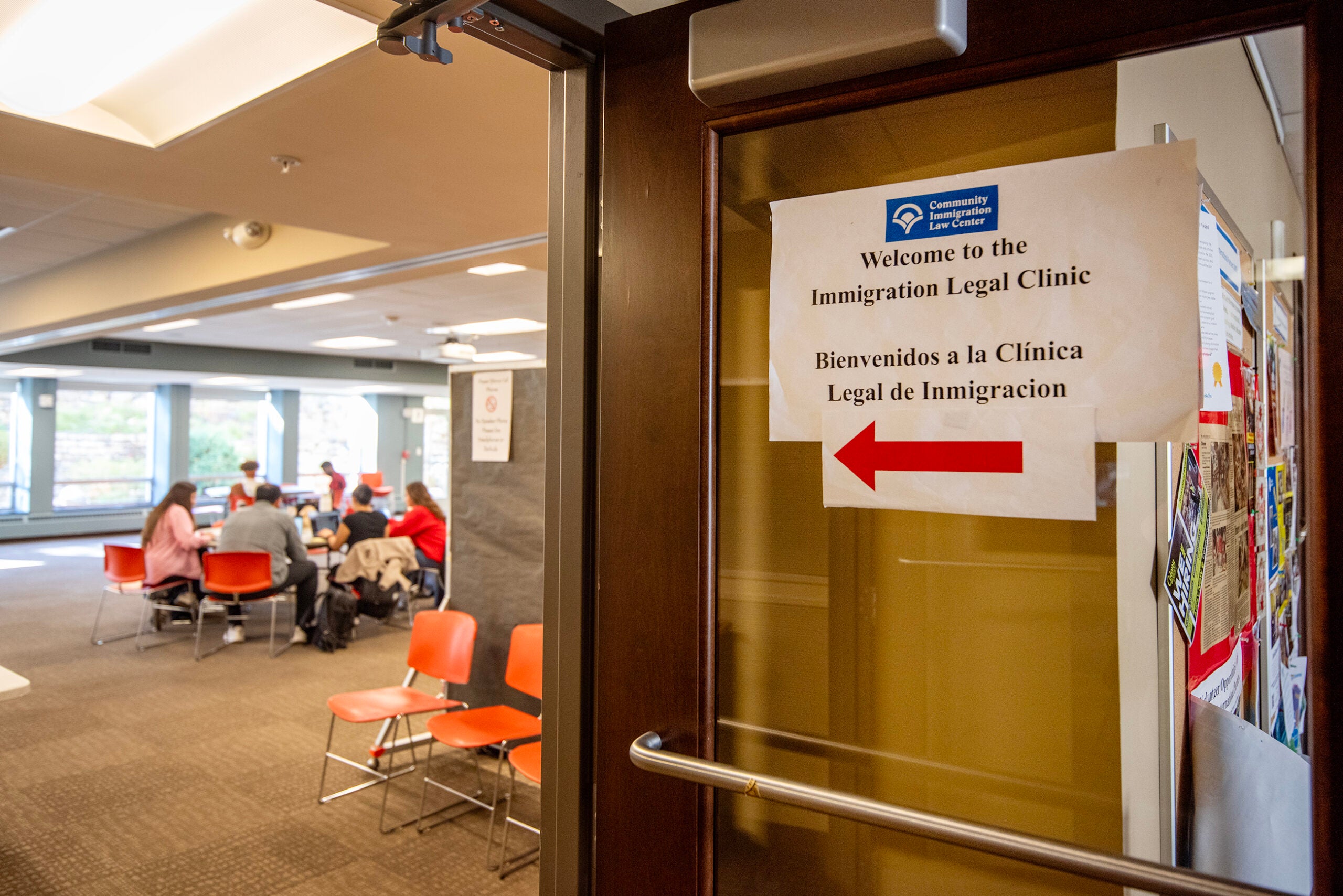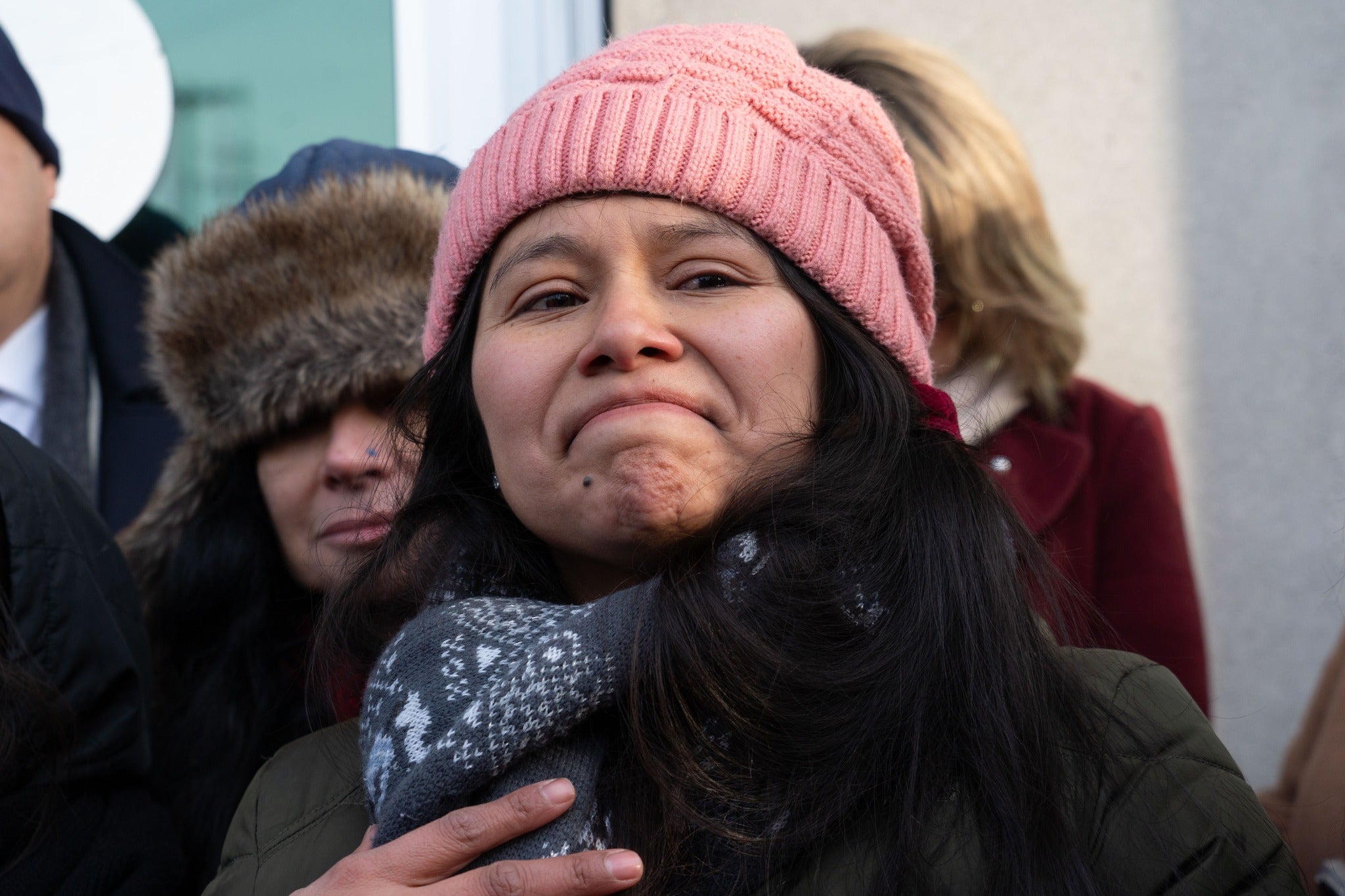The head of a Wisconsin-based group that helps migrants navigate the legal system said many people are being deported despite having a legal right to stay in the country because the system fails to give them proper legal representation in court.
Grant Sovern is an attorney and board president of the Community Immigration Law Center in Madison. The law center offers public defender legal services to people facing immigration challenges.
On WPR’s “Wisconsin Today,” Sovern said immigration cases fall under civil case law rather than criminal law, which means that people in immigration court have a right to legal representation. But they do not have a right for the public to provide an attorney, as is the case in criminal court, “because we look at that as a restriction on your liberty if you’re going to jail.”
News with a little more humanity
WPR’s “Wisconsin Today” newsletter keeps you connected to the state you love without feeling overwhelmed. No paywall. No agenda. No corporate filter.
“But if you look at people who are detained for immigration purposes, even though it’s civil law like paying your taxes late or a parking violation, you can end up in jail,” he said.
“It looks like you’re a criminal. You’re wearing an orange jumpsuit. You’re shackled to your chair. You can be forced from your community and separated from your family and your job,” he said. “And yet, because it’s civil law, you don’t have a right to a paid-for lawyer representing you in those proceedings.”
On “Wisconsin Today,” Sovern discussed due process rights in deportation cases and the impact of the Trump administration’s focus on immigration-related arrests.
The following was edited for brevity and clarity.
Rob Ferrett: To what extent do people have a right to due process if they face deportation?
Grant Sovern: There are plenty of laws that do say people get their due process, whether you’re an immigrant with a visa, with a green card or even just a person in the United States. The Constitution actually protects every person in the United States from law enforcement coming and not giving you an opportunity to explain what your immigration status is or to get some help doing it.
RF: Are people being detained and deported even getting an opportunity to challenge this effort to remove them?
GS: There have been a lot of efforts by the government to limit due process because it slows down their efforts, which seems to be racking up as many deportations as possible no matter what the person’s status is or what due process rights somebody has. It has been very difficult for people. They’re whisked away without getting the opportunity to make telephone calls. And there are very, very limited immigration resources already in Wisconsin. Even if people have the resources, there aren’t enough immigration lawyers to be able to represent everybody who gets picked up for deportation.
RF: What work do you do and who are you trying to work with?
GS: We’re just trying to give due process to people to make sure that the government gets it right. Frankly, because I think a lot of people think there’s a good list and a bad list, and if you’re on the bad list, the government must know that you’re here and you shouldn’t be. And if ICE picks you up, you’re getting deported. There was a study in New York City where about 20 percent of the people had lawyers, and for those people who were in immigration court facing deportation … 96 percent of the time they ended up getting deported, which sort of supports the idea that there’s a good list and a bad list.
But after the city of New York gave enough money for an organization like the Community Immigration Law Center to give a lawyer to every single person in immigration court, two years later, it turned out that only about 50 percent of those people were deported. It wasn’t because these clever lawyers were finding some loophole, they were literally just applying the law the way it existed, which told us two amazing things: half of the people are getting deported who shouldn’t be, according to the actual laws Congress passed; and the second thing we learned was there’s actually something that we as Americans can do to help due process.
RF: The Trump administration’s stated goal is to deport a lot more people. Are you feeling the difference at the Community Immigration Law Center?
GS: It’s true. … We have seen a lot more activity. There haven’t been raids like a lot of people are worried about. But there is much more targeted enforcement of immigration rules right now by ICE going to people’s homes, to their business sometimes, and as we saw last week, even in courthouses. ICE is doing much more of that and targeted ways of going after people who they believe might be deportable, which is why you need a lawyer to help figure out whether somebody is actually deportable.
Just because ICE has an administrative warrant, which is their own determination that they’d like to talk to this person to find out if they’re deportable, it doesn’t mean that you actually will get deported. And that’s why supporting efforts to make sure we have due process means that we will have safer communities and that rights are upheld for everybody.







